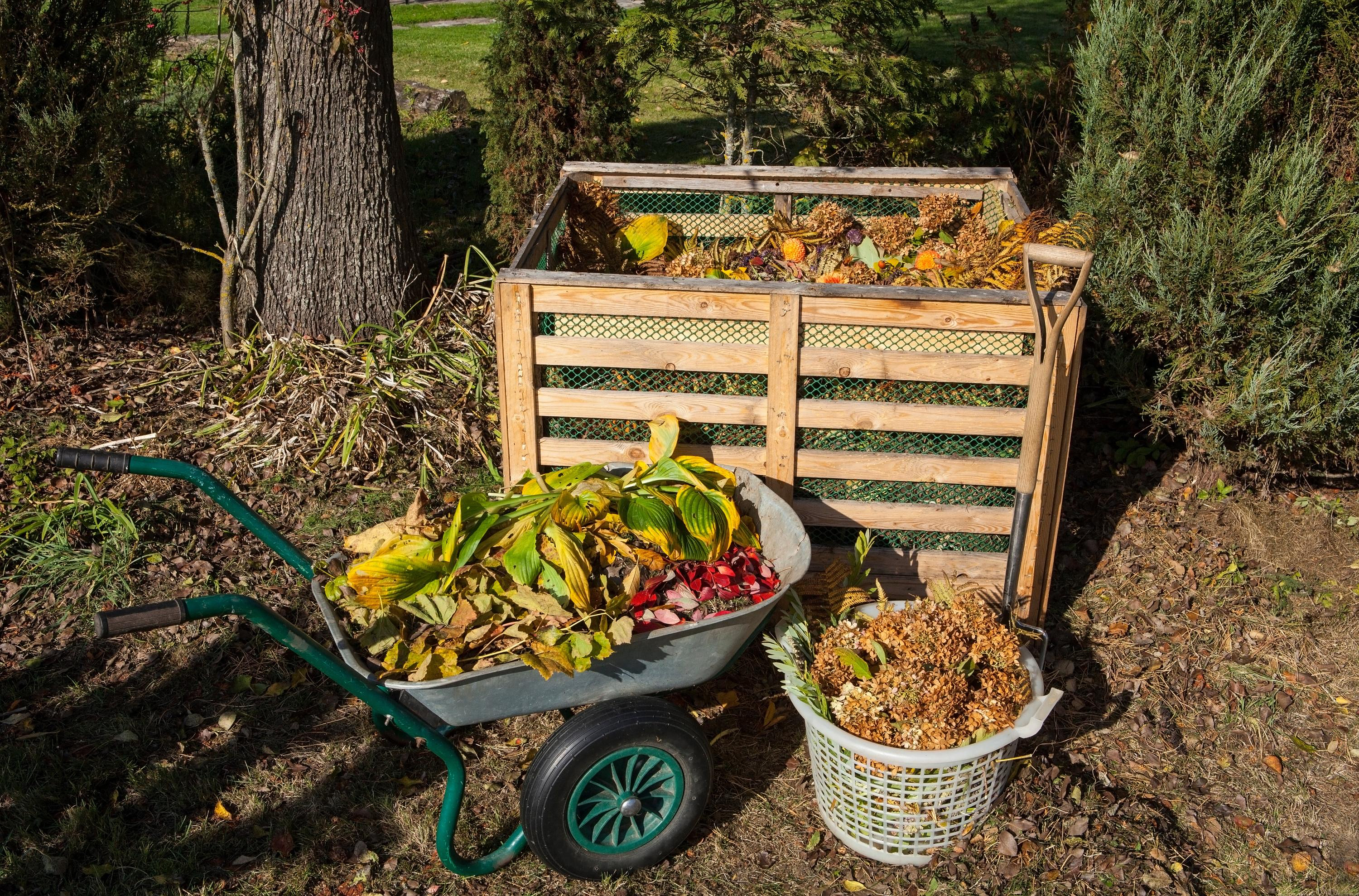By January 1, 2024, communities must have provided residents with a solution for sorting their organic waste, so that it is no longer thrown into the “classic” trash bin but separately to be recycled. “This development has its origins in the Grenelle II law of 2010 which imposed thresholds on large producers of biowaste,” explains Muriel Bruschet, national biowaste referent at the Environment and Energy Management Agency (Ademe ). Then in 2015, a law extended this sorting obligation to communities for January 1, 2025. “Europe has taken up the text and brought forward this deadline to January 1, 2024 for all member countries,” specifies the expert. The anti-waste law for a circular economy (Agec) passed in February 2020 only applied this European regulation. » Important clarification, therefore: the law does not apply to households and contrary to rumors, “no trash will be collected with a view to sanctioning individuals”, assures Ademe.
Each French person generates 83 kg of bio-waste per year, and this represents around a third of our unsorted waste. This includes both green waste from gardening, such as lawn mowing, twigs or dead leaves, but also food waste such as fruit and vegetable peelings, chicken bones, fish scraps. or even candy. All leftover meals or expired kitchen products therefore, insists Muriel Bruschet: “False information is circulating concerning certain foods which supposedly should not end up in the compost; they probably come from the fact that people confuse vermicomposting and classic composting. When we talk about vermicomposting, we are talking about multi-layer boxes housing worms which have a particular diet and to which we must in fact avoid giving garlic, citrus peels, fish or in meat. But in a classic compost, you can put everything, provided you have good practices: cut the remains into small pieces, stir well, make sure that everything is sufficiently moist..."
“The primary challenge is to remove bio-waste from the landfill or incinerator, because it contains a lot of water, and burning it does not make sense,” says Vincent Coissard, head of the waste and waste sub-directorate. circular economy at the Ministry of Ecological Transition, cited by AFP. The compaction of waste and its incineration cause greenhouse gas emissions, responsible for global warming.
The objective of sorting is therefore to send this bio-waste to composting platforms or to a methanizer to make biogas. As for composting, the micro-organisms will degrade the bio-waste to make an amendment, in other words a substance which will improve the properties of the soil to make it, for example, more resistant to drought and erosion. This helps reduce the use of chemical fertilizers. The other way of recovery is methanization: “the methane produced by the fermentation of organic matter will be recovered then reinjected into the gas networks to create heat or electricity,” explains Muriel Bruschet.
Communities must choose the solutions they will make available to their citizens and inform them (it is therefore not up to the latter to buy their own composter). They can opt for local management, with distribution of individual or neighborhood composters, at the foot of buildings for example. Individuals then manage the compost and use it for their garden, balcony or indoor plants. They can also choose separate collection, door to door or with the provision of specific bins on the public highway, which a truck will then transport to industrial composting or methanization platforms. Which is the most effective option? “The best solution is the complementarity of solutions,” believes Muriel Bruschet. You must carefully study the needs of your territory” which will not be the same if it concerns residential or very dense urban areas.
Odors, rodents, etc. To reduce nuisance, collection trucks are required to pass at least once a week and the bins must be cleaned regularly. “That being said, we must keep in mind that these are closed metal bins,” recalls the expert. Rats have always been there, and they will be no more attracted than by regular trash cans that already contain this bio-waste.”
The principle having been implemented since 2015, communities are not caught off guard. “If the question is whether 100% of French inhabitants will have a sorting solution at source [on January 1, 2024], it’s no, because the deployment will be underway,” admitted the Ministry of Ecological Transition, however. . Less than a third of the population (20 million French people) should benefit from it by this date. The ministry aims to have doubled the investment by the end of the year, provided that the industrial sector is ready to treat the waste downstream.
For the moment in any case, no sanction mechanism is planned for communities which do not play the game. “The question could be asked differently if the European Commission initiated a litigation procedure vis-à-vis France , but the question absolutely does not arise at the moment,” explains those around the Minister of Ecological Transition Christophe Béchu. And if certain associations denounce a lack of political will to enforce the law, this same source responds that there is no question of “being in a perpetual standoff”. The implementation of this new collection is complex and has a cost (estimated between seven and twenty euros per inhabitant) which can inevitably have repercussions on local taxation... hence undoubtedly a certain "reluctance" of communities to throw.
The State supported the deployment of bio-waste sorting via the recovery plan in 2021/2022, then via the Green Fund (endowed with a total of 2 billion euros in 2023 and 2.5 billion in 2024). 200 requests for support were supported (up to 30%) this year, for a total amount of 63 million euros, according to the ministry.
In the capital, the town hall is aiming to install around 500 new bio-waste bins in the street by the end of next year. These bins must be “less than three minutes” on foot from the homes of “all Parisians”, the deputy for cleanliness, Antoine Guillou, explained to AFP. According to him, collection will be carried out every 48 hours by the Derichebourg recycling company and the waste will be transformed into biomethane.
The town hall, however, decided to put an end to the collection of bio-waste at home, tested since 2017 in three districts (the 2nd, 12th and 19th), because the quantities collected were “relatively low”. “What also comes up is that there was not enough space in the garbage rooms,” notes Muriel Bruschet. Yet other large cities have managed to do so, such as in Italy.” The city of Milan is also a champion in this area: 87% of food scraps produced by the city are sorted.

 What is chloropicrin, the chemical agent that Washington accuses Moscow of using in Ukraine?
What is chloropicrin, the chemical agent that Washington accuses Moscow of using in Ukraine? Poland, big winner of European enlargement
Poland, big winner of European enlargement In Israel, step-by-step negotiations for a ceasefire in the Gaza Strip
In Israel, step-by-step negotiations for a ceasefire in the Gaza Strip BBVA ADRs fall almost 2% on Wall Street
BBVA ADRs fall almost 2% on Wall Street Children born thanks to PMA do not have more cancers than others
Children born thanks to PMA do not have more cancers than others Breast cancer: less than one in two French women follow screening recommendations
Breast cancer: less than one in two French women follow screening recommendations “Dazzling” symptoms, 5,000 deaths per year, non-existent vaccine... What is Lassa fever, a case of which has been identified in Île-de-France?
“Dazzling” symptoms, 5,000 deaths per year, non-existent vaccine... What is Lassa fever, a case of which has been identified in Île-de-France? Sánchez cancels his agenda and considers resigning: "I need to stop and reflect"
Sánchez cancels his agenda and considers resigning: "I need to stop and reflect" “Amazon product tester”: the gendarmerie warns of this new kind of scam
“Amazon product tester”: the gendarmerie warns of this new kind of scam “Unjustified allegations”, “promotion of illicit products”… Half of the influencers controlled in 2023 caught by fraud repression
“Unjustified allegations”, “promotion of illicit products”… Half of the influencers controlled in 2023 caught by fraud repression Extension of the RER E: Gabriel Attal welcomes a “popular” ecology project
Extension of the RER E: Gabriel Attal welcomes a “popular” ecology project WeWork will close 8 of its 20 shared offices in France
WeWork will close 8 of its 20 shared offices in France “We were robbed of this dignity”: Paul Auster’s wife denounces the betrayal of a family friend
“We were robbed of this dignity”: Paul Auster’s wife denounces the betrayal of a family friend A masterclass for parents to fill in their gaps before Taylor Swift concerts
A masterclass for parents to fill in their gaps before Taylor Swift concerts Jean Reno publishes his first novel Emma on May 16
Jean Reno publishes his first novel Emma on May 16 Cannes Film Festival: Meryl Streep awarded an honorary Palme d’Or
Cannes Film Festival: Meryl Streep awarded an honorary Palme d’Or Omoda 7, another Chinese car that could be manufactured in Spain
Omoda 7, another Chinese car that could be manufactured in Spain BYD chooses CA Auto Bank as financial partner in Spain
BYD chooses CA Auto Bank as financial partner in Spain Tesla and Baidu sign key agreement to boost development of autonomous driving
Tesla and Baidu sign key agreement to boost development of autonomous driving Skoda Kodiaq 2024: a 'beast' plug-in hybrid SUV
Skoda Kodiaq 2024: a 'beast' plug-in hybrid SUV The home mortgage firm rises 3.8% in February and the average interest moderates to 3.33%
The home mortgage firm rises 3.8% in February and the average interest moderates to 3.33% This is how housing prices have changed in Spain in the last decade
This is how housing prices have changed in Spain in the last decade The home mortgage firm drops 10% in January and interest soars to 3.46%
The home mortgage firm drops 10% in January and interest soars to 3.46% The jewel of the Rocío de Nagüeles urbanization: a dream villa in Marbella
The jewel of the Rocío de Nagüeles urbanization: a dream villa in Marbella Europeans: a senior official on the National Rally list
Europeans: a senior official on the National Rally list Blockade of Sciences Po: the right denounces a “drift”, the government charges the rebels
Blockade of Sciences Po: the right denounces a “drift”, the government charges the rebels Even on a mission for NATO, the Charles-de-Gaulle remains under French control, Lecornu responds to Mélenchon
Even on a mission for NATO, the Charles-de-Gaulle remains under French control, Lecornu responds to Mélenchon “Deadly Europe”, “economic decline”, immigration… What to remember from Emmanuel Macron’s speech at the Sorbonne
“Deadly Europe”, “economic decline”, immigration… What to remember from Emmanuel Macron’s speech at the Sorbonne These French cities that will boycott the World Cup in Qatar
These French cities that will boycott the World Cup in Qatar Champions Cup: Toulouse with Flament and Kinghorn against Harlequins, Ramos replacing
Champions Cup: Toulouse with Flament and Kinghorn against Harlequins, Ramos replacing Tennis: still injured in the arm, Alcaraz withdraws from the Masters 1000 in Rome
Tennis: still injured in the arm, Alcaraz withdraws from the Masters 1000 in Rome Sailing: “Like a house that threatens to collapse”, Clarisse Crémer exhausted and in tears aboard her damaged boat
Sailing: “Like a house that threatens to collapse”, Clarisse Crémer exhausted and in tears aboard her damaged boat NBA: Patrick Beverley loses his temper and throws balls at Pacers fans
NBA: Patrick Beverley loses his temper and throws balls at Pacers fans


















